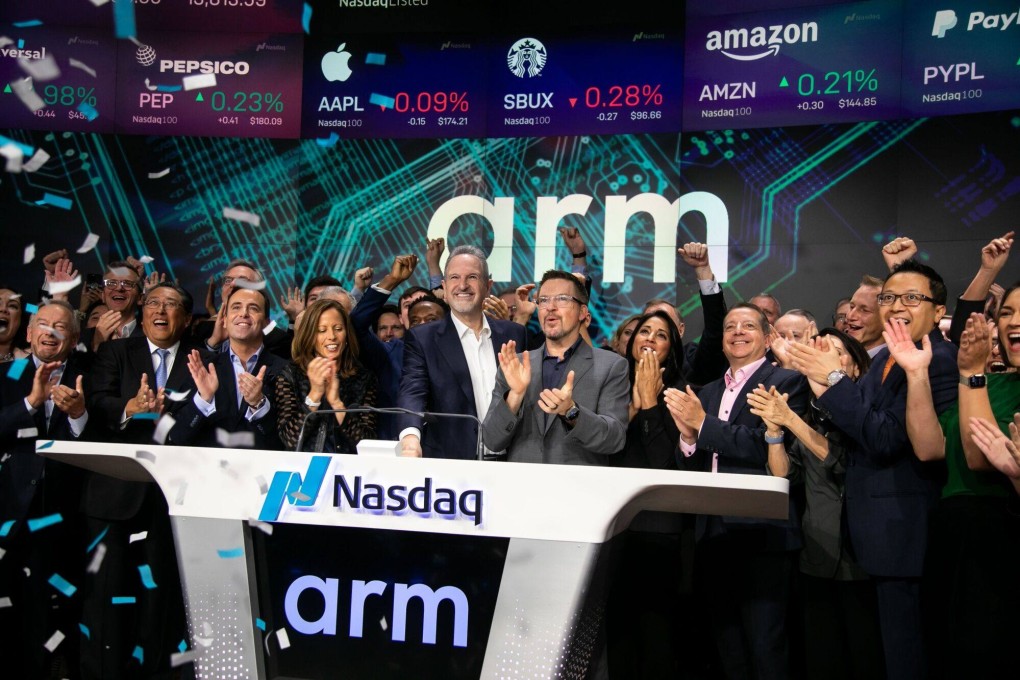SoftBank-backed chip designer Arm soars after successful IPO despite warnings of China risks
- The valuation is within a previous target range thought to have been dampened by details in Arm’s IPO prospectus, such as its China exposure
- The results reflect investor confidence in the company in the short term, although long-term risks remain, analysts say

British chip designer Arm Holdings has launched a successful US$5 billion initial public offering (IPO) in New York, as investors rushed to buy into the company despite its heavy exposure to heightened China-US tech tensions.
The IPO was the largest US public offering in almost two years, with shares in the SoftBank Group-owned company soaring almost 25 per cent above its debut price on the Nasdaq in trading on Thursday, valuing the company at around US$65 billion.
Shares continued to jump during after-market trading.
“The reception to the IPO and the initial stock reaction have been very favourable,” said Rolf Bulk, an analyst at New Street Research, adding that it also signals some investor confidence in Arm’s business in China, at least in the short term.
Other elements to the blockbuster IPO include factors such as its scarcity due to a low float of 10 per cent and a perception of coming growth in the smartphone market, he said.